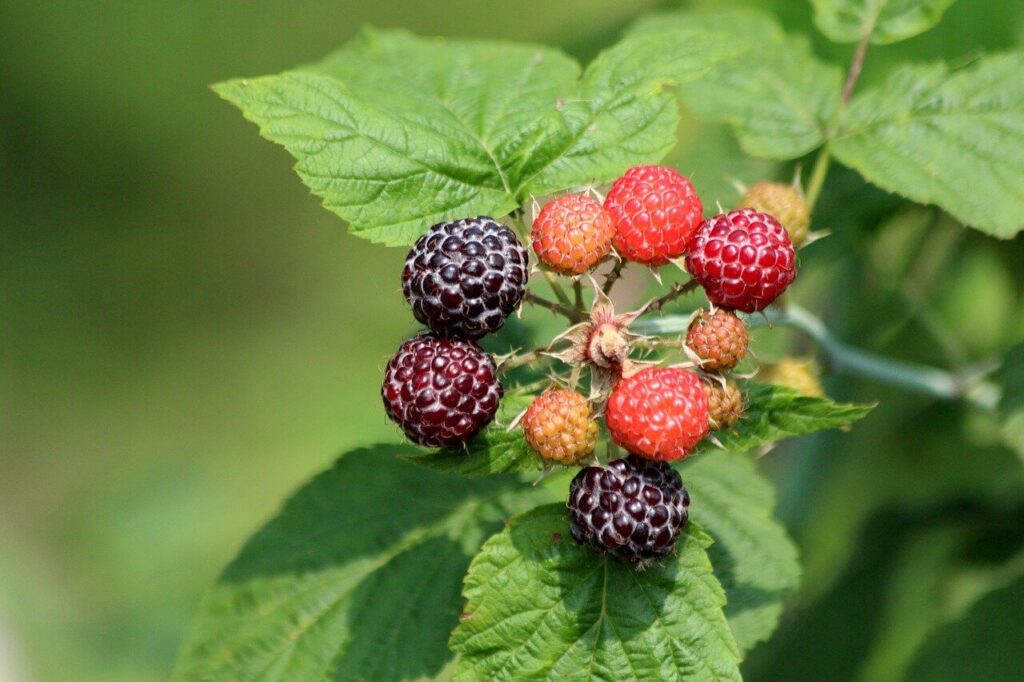Table of Contents
Black cap raspberry plants, often called black raspberries, are a delightful addition to any garden. Known for their unique flavor and nutritional benefits, these berries are versatile and can be used in a variety of recipes, from jams to smoothies. With the right care and setup, you can cultivate your own black cap raspberry plants at home and enjoy fresh berries straight from the garden.
What are Black Cap Raspberry Plants?
Black cap raspberry plants, scientifically known as Rubus occidentalis, are native to North America and are different from the common red raspberry. They produce dark purple, nearly black berries that are packed with antioxidants, vitamins, and minerals. In addition to their taste, these berries are favored for their health benefits, offering a unique flavor that’s less tart and sweeter than red raspberries.
How to Plant Black Cap Raspberry Plants
Growing is relatively easy if you have the right conditions. Here’s what you need to know to get started:
- Location: These plants thrive in sunny areas with partial shade. Ensure the soil is well-draining and rich in organic matter.
- Soil Preparation: Prepare the soil by adding compost or well-rotted manure, as need nutrient-rich soil.
- Spacing: Plant the raspberries about 2-3 feet apart, allowing enough room for air circulation to reduce the risk of disease.
Caring for Black Cap Raspberry Plants
Once planted, require regular maintenance to produce a good harvest. Here are essential tips for keeping your plants healthy:
- Watering: Keep the soil consistently moist, especially during dry spells. Water the plants early in the morning to allow foliage to dry throughout the day.
- Pruning: benefit from regular pruning, which encourages new growth and enhances berry production. Prune in late winter or early spring.
- Mulching: Apply a layer of mulch around the plants to retain moisture, reduce weeds, and keep roots cool.
Benefits of Growing Black Cap Raspberry Plants
There are several advantages to adding to your garden. First, these berries are highly nutritious and contain antioxidants that support overall health. Moreover, growing your own berries is cost-effective and reduces the need for store-bought options, which may be treated with chemicals. Additionally, black cap raspberries attract pollinators like bees, which can benefit your entire garden ecosystem.
Transitioning to an Organic Garden with Black Cap Raspberry Plants
Transitioning to organic gardening with is a rewarding choice. Since these plants require minimal chemical interventions, they’re ideal for an organic setup. By adopting organic practices, you can create a healthy environment that supports the growth of nutrient-dense berries while benefiting local wildlife and pollinators.
Conclusion: Enjoying Black Cap Raspberry Plants in Your Garden
Black cap raspberry plants offer a unique and delicious berry that’s perfect for home gardeners. With their ease of care, nutritional benefits, and minimal maintenance needs, these plants make a fantastic addition to any garden. So, if you’re looking to expand your berry collection or want to start a rewarding gardening project, are an excellent choice. With the right setup and a little care, you can enjoy bountiful harvests of fresh, homegrown berries year after year.


